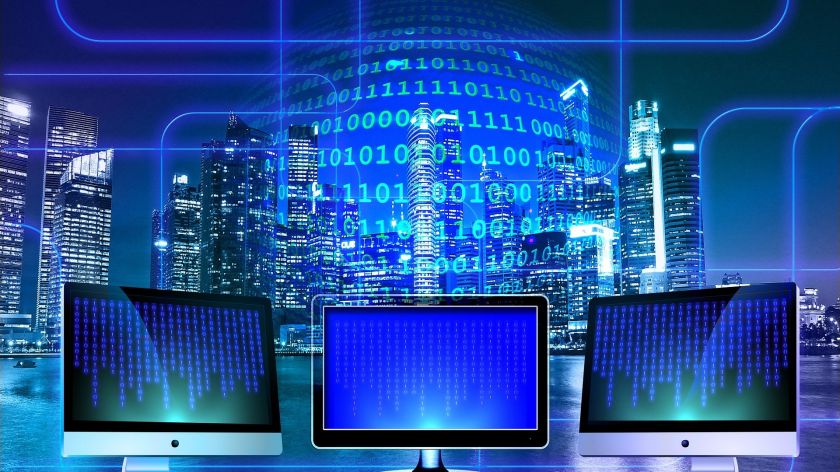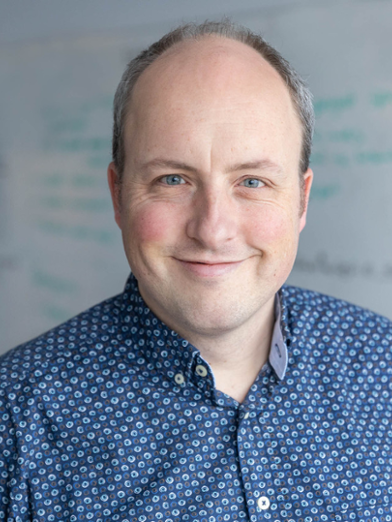-
 Beeld: Pixabay
Beeld: Pixabay
The IT crowd is responsible for an increasing amount of worldwide energy usage. That is why the Institute for Computing and Information Sciences in Nijmegen wants to draw more attention to sustainability. According to Bernard van Gastel, environmentally friendly IT can be very beneficial for the environment.
It is estimated that the IT sector is responsible for several percentiles of the global energy usage, according to Bernard van Gastel, professor of Sustainable digitalization. Despite this, there is little attention for sustainability at the Institute for Computing and Information Sciences, especially in education. Since October 1st, Van Gastel is responsible for a sustainability initiative (see insert) set to change this.
What do you intend to do?
‘It is my intention to help shape education on sustainability and outline the research at our institute to see how we can connect that to issues of sustainability. Our idea is that, because sustainability relates to everything, there shouldn’t be a separate study dedicated to it. Rather, all our research should relate to sustainability in some way. Besides that, I want to map out the energy usage of software. That will be my own research project: the Software Energy Lab.’
Sustainability initiative
The Institute for Computing and Information Sciences (ICIS) wants to draw attention to sustainability in IT. That’s a new frontier, according to Van Gastel, wich means that the initiative does not yet have a concrete shape.But it is clear that, when it comes to both research and education, more attention will be paid to such subjects as environmental impact, energy usage, and sustainability.
Why is the energy usage of of software so important?
‘Software is everywhere nowadays. It controls almost every device we have – not just computers, but also fridges and even lamps. If the software controlling these devices is smarter about their usage, the hardware will consume less energy. This can be compared with smart driving: if the autopilot starts doing things like letting the car come to a rolling stop at a red light, rather than braking, that can save some petrol.’
‘If the software controlling these devices is smarter about their usage, the hardware will consume less energy’
Even so, it seems that there is little attention for sustainable software.
The difficulty is that using smarter software can make a lot of things a little bit more efficient. That does not make for a very engaging story. The amount of energy saved is often in the single percentiles, which most people think does not matter all that much. But: it all adds up. For example, look at the European guidelines for vacuum cleaners: their maximum allowed wattage was reduced to 900 watts in 2017. With millions of vacuums in the EU, that leads to quite a lot of energy saved. The new guidelines have been estimated to save 20 terawatt hours per year within ten years, which is about a fifth of the yearly energy usage of the Netherlands. And that’s just vacuum cleaners!’
How do you intend to make more environmentally friendly software?
‘We want to develop new methods of analysis where software engineers get immediate feedback on the sustainability of every line of code they write. The issue is that the software engineers are often unaware of how sustainable their product is. Sometimes they create software for a product that still needs to be built, and the software won’t be matched to hardware until six months later. At that point, the energy usage can’t be derived from specific instructions in the code.’
‘The methods of analysis and prediction we will be developing will provide immediate feedback. Those methods are derived from measuring the usage of devices controlled by software, which is quite complex. It involves opening those devices and literally cutting wires and attaching measuring equipment. Then we need to match those measurements to specific lines of code in the software. We can use that information to make a mathematical model of the hardware, which we can then use to predict energy usage of the software.’
‘We aim to have a significant impact in the long term. It won’t work fi we develop something that sees no practical usage. That’s why I’m setting up a cooperation with the HAN; their IT curriculum is filled with software development.’
You referred to your research project as the Software Energy Lab. Does that mean that there will be a new computer lab somewhere on campus?
‘The first measuring equipment is set to arrive today, and we will probably add to it every year. In practice, that means that there will likely be about three devices on top of the cabinet in my office, gently buzzing in the background. I’m thrilled, because for information science that is a very experimental research setup. Physicists may laugh, but to us it’s special.’
‘Awareness is more important than education about sustainable choices’
What will education about sustainability look like?
‘The idea is to give sustainability a little attention in a lot of different subjects. There will also be a new subject dedicated to the issue. I made the initial plans three weeks ago, so the full contents haven’t been worked out yet.’
‘But what has become very clear is that students and IT professionals have no idea whatsoever about the energy impact of software. Students don’t realise that the numbers add up when a program has millions of users. Awareness of that fact is more important than education about sustainable choices – those choices may be very different in five to ten years. What matters most is the mindset: the realisation that modern technology causes a lot of harm to our society, and the realisation that this can be changed.’
Translated by Jasper Pesch.




